You’ve probably heard the words ‘CBD Oil’ somewhere, somehow by now, as it rises in popularity as a natural source of pain relief. But what exactly is it, how does it work, how do you consume it, is it safe and is it legal? These might be some questions that come to mind if you’re unfamiliar with CBD Oil. In fact, knowing that it comes from the cannabis plant – the same one as weed or pot – might even stir up a sense of suspicion and apprehension. Let’s break down the facts.
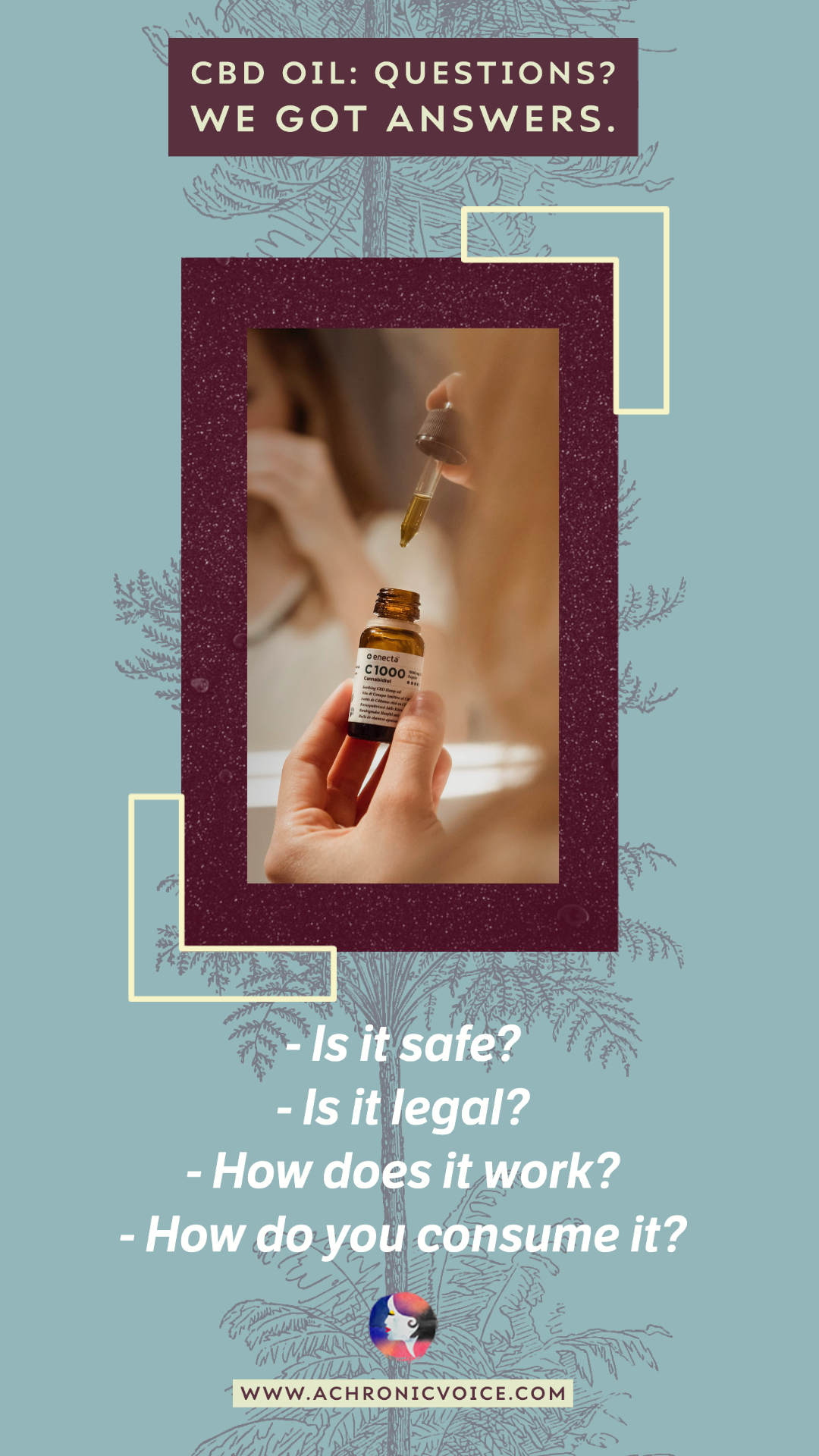
Table of Contents
What is CBD Oil and Where Does it Come From?
There are a few different types of cannabis plants, two of which are hemp and marijuana. Like any other plant, cannabis plants all contain a mix of chemical compounds. The main ones in cannabis are CBD (cannabidiol), THC (tetrahydrocannabinol – the psychoactive compound that gets you high), terpenes (which gives them their fragrance and addon benefits), and a few more.
Hemp is grown legally, and has other industrial uses such as in the making of textiles. 95% of it is grown for its flowers however, which are used to make CBD Oil. Marijuana on the other hand contains a high amount of THC, which is a Schedule 1 controlled substance in most countries. An easy way to remember the difference: hemp contains less than or equal to 0.3% of THC; anything more is marijuana.
Is CBD Oil Legal in My Country?
Unfortunately for me, cannabis is illegal in any shape or form in my country, Singapore. In the US and UK, CBD Oil is legal so long as the product contains less than 0.2% of THC within it. Do note that each state in the US has varying restrictions on the usage of CBD Oil, and that it is still considered a drug by the FDA.
How Safe is it to Take CBD Oil?
Like any medication, supplement and even food, the consumption of CBD Oil is dependent on a variety of factors both external and internal. We are all unique individuals; the state of your own health and medications you take matters. The quality and mix of the product, how you choose to consume it and how much you take also plays a part.
Because of that, side effects will also vary in every individual. One product may help a person cope with certain pain problems, whilst making another feel nauseous or anxious. It is also important to note that CBD Oil is a blood thinner and can interact with grapefruit, like other immunosuppressants and medications. Please do your research and check with your doctor on the potential side effects before trying it out.
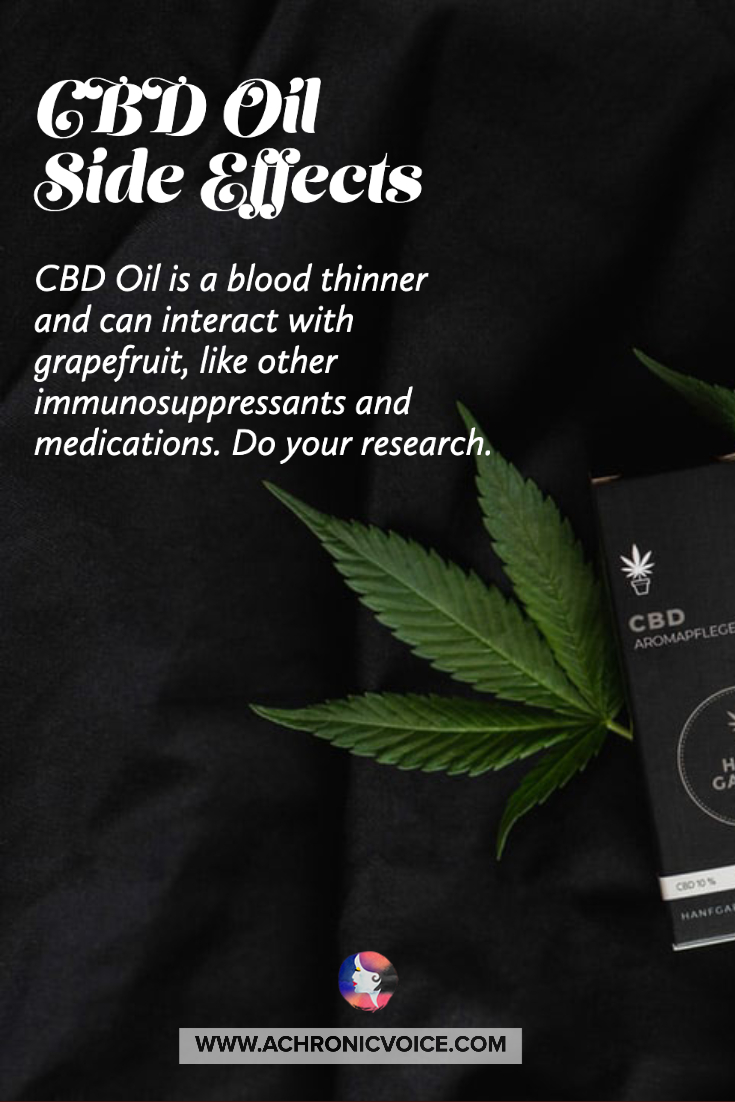
How Does CBD Work in the Body Part I: The Endocannabinoid System (ECS)
Phytocannabinoids are cannabinoids that come from plants. Our bodies also produce natural cannabinoids known as endocannabinoids, which can even be found in breast milk. The purpose of the ECS as a whole is to maintain a state of homeostasis – or balance – within our bodies. The ECS regulates a variety of delicate biological functions: body temperature, pain sensations, appetite, hormones, bone growth, inflammation, and more. Not too hot and not too cold. Not too much and not too little.

How Does CBD Work in the Body Part II: Receptors
Receptors are protein molecules found embedded on every cell wall. Like its name says, its job is to receive (or reject). External chemical information such as those from hormones or drugs can be receptor agonists or inverse agonists. When a receptor agonist binds to a cell, it triggers a set of instructions within it. This leads to a reaction within our bodies in one form or another.
The Conversation has a nice illustration here:
“Simply put, an agonist is like the key that fits in the lock (the receptor) and turns it to open the door (or send a biochemical or electrical signal to exert an effect). The natural agonist is the master key but it is possible to design other keys (agonist drugs) that do the same job.”
CBD is a CB1/CB2 receptor agonist, thus binding to the cells found in the Endocannabinoid System. This triggers a pain relieving response within the body. Some medical conditions it is said to help are epilepsy, joint and muscle aches, anxiety and more. Many clinical trials are still ongoing, with Epidiolex as the first FDA approved drug derived from CBD that treats rare forms of seizures.
Pin to Your Chronic Illness & Medical Research Boards:
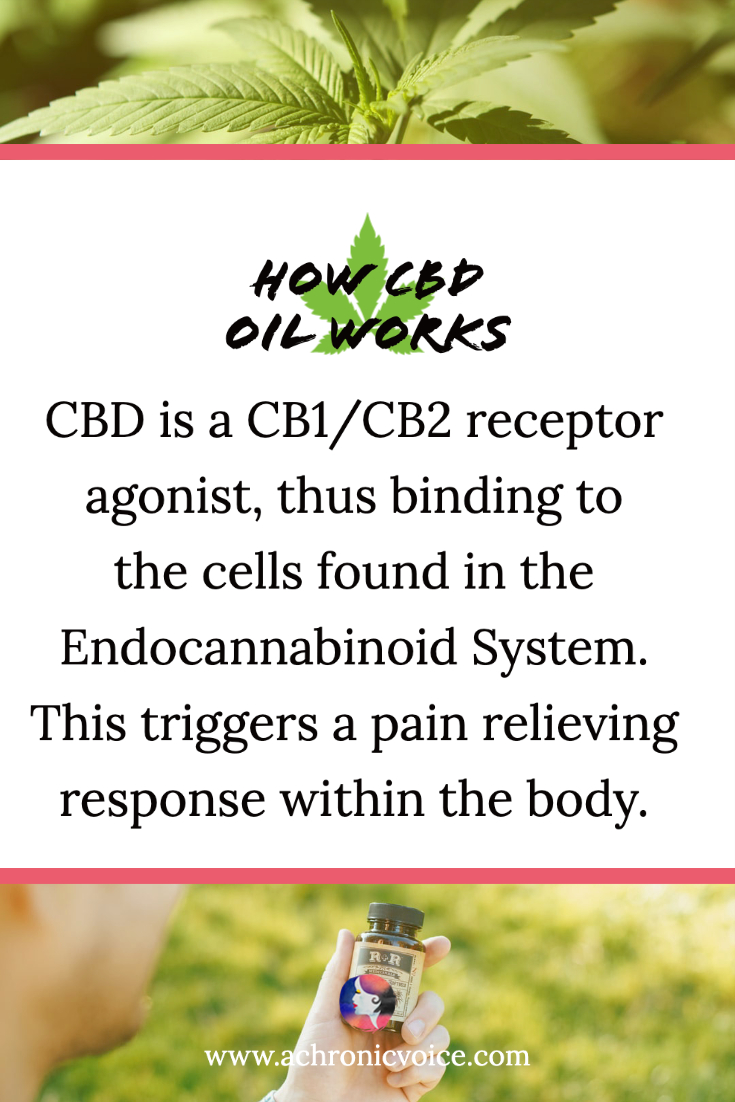
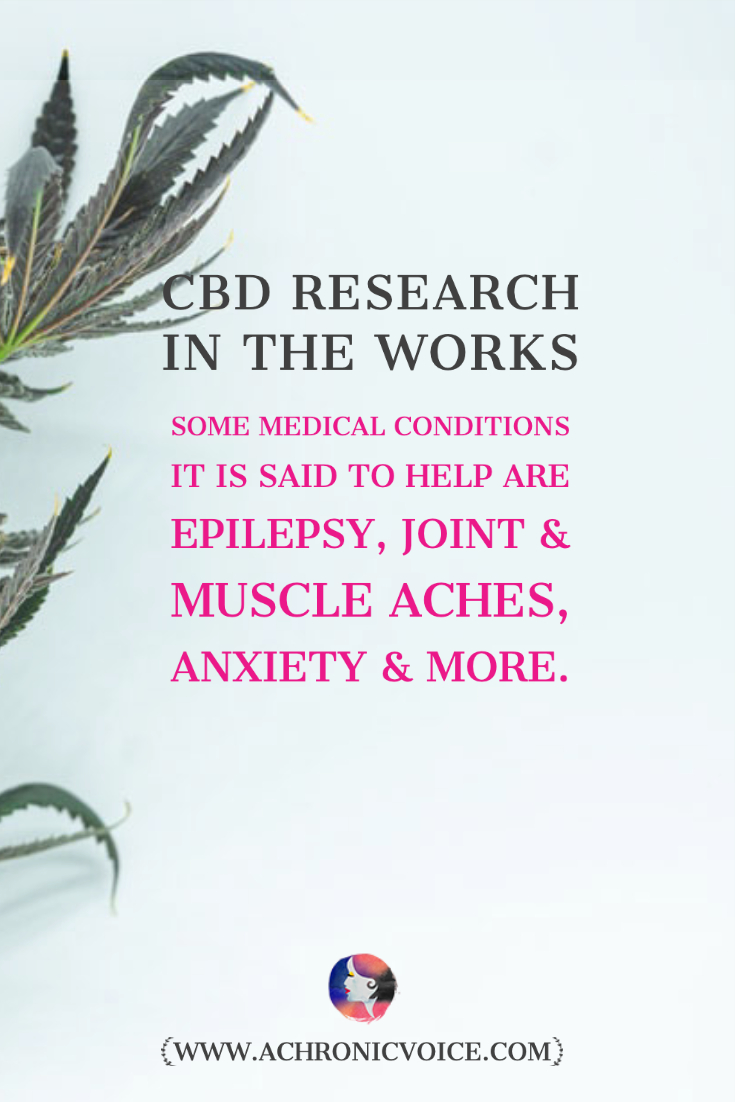
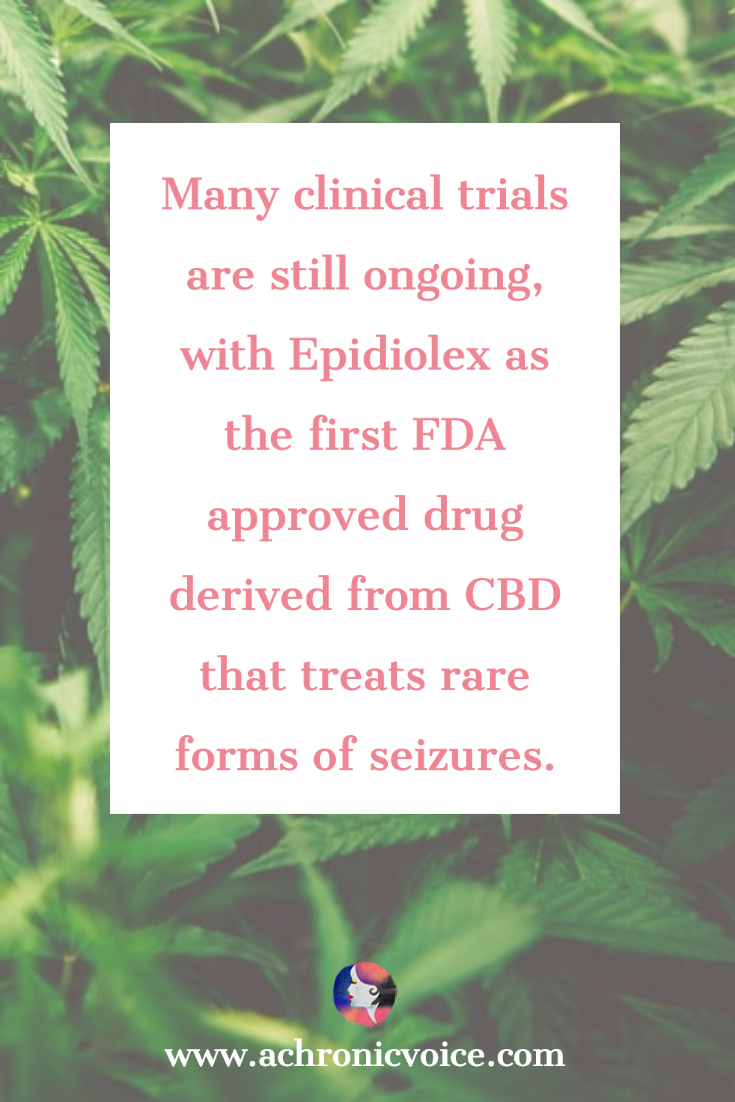
Understanding CBD Isolate vs Full Spectrum Differences
CBD also comes in isolate vs full spectrum forms. The former extracts only CBD from the hemp plant. The latter preserves other compounds, such as terpenes and other variations of cannabinoids. Each of these compounds come with their own unique set of benefits, and can enhance certain reactions within your body.
This is also known as the ‘entourage effect’. For example, the terpene ‘pinene’ is a bronchodilator, anti-inflammatory, anti-bacterial, and aids with memory and alertness. The terpene ‘myrcene’ on the other hand is a muscle relaxant and sedative. You can also find the entourage effect used in your regular OTC pain relievers such as panadol/tylenol and ibuprofen.
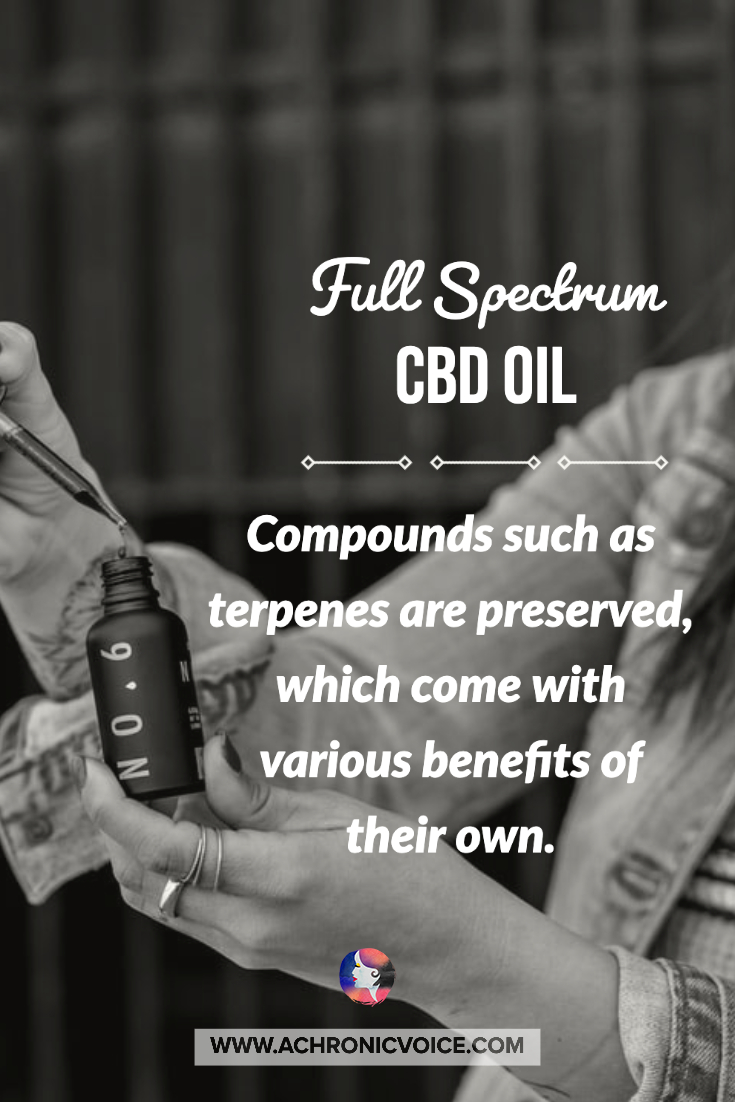
There are So Many CBD Oil Products Out There. Help?!
CBD products come in the form of topicals, tinctures, edibles, vaporisers and more. Usage depends on your needs, type of pain and pain levels, and how comfortable you are with the method of consumption. The pros and cons of each one could make an entire blog post or two of their own, but here are some key differences between them:
Topical creams, lotions, oils and ointments are supposedly good for localised pain relief. Tinctures that you hold under your tongue before swallowing are absorbed quickly into your system. Edibles such as gummies or baked goods may have a longer lasting effect, but also takes more time to kick in. Vaping delivers a higher dose for greater pain relief, but the inhalation might not be good for your lungs.
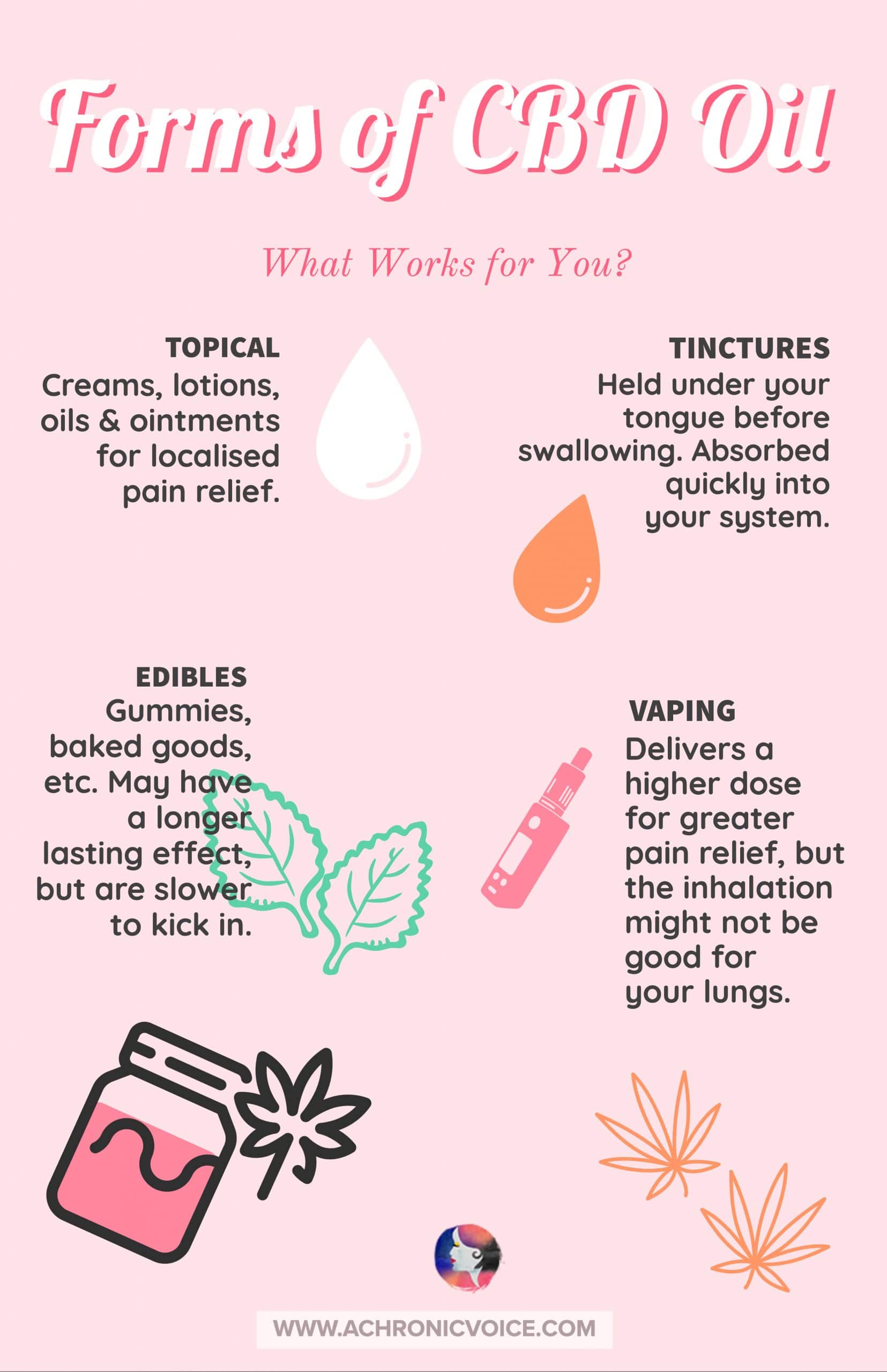
It is often a trial and error process for many people, before they find what they need. So don’t get discouraged if at first you hate the taste, or don’t experience any positive side effects. Whatever you choose to do, the general advice is to start slow, and work your way up and around from there.
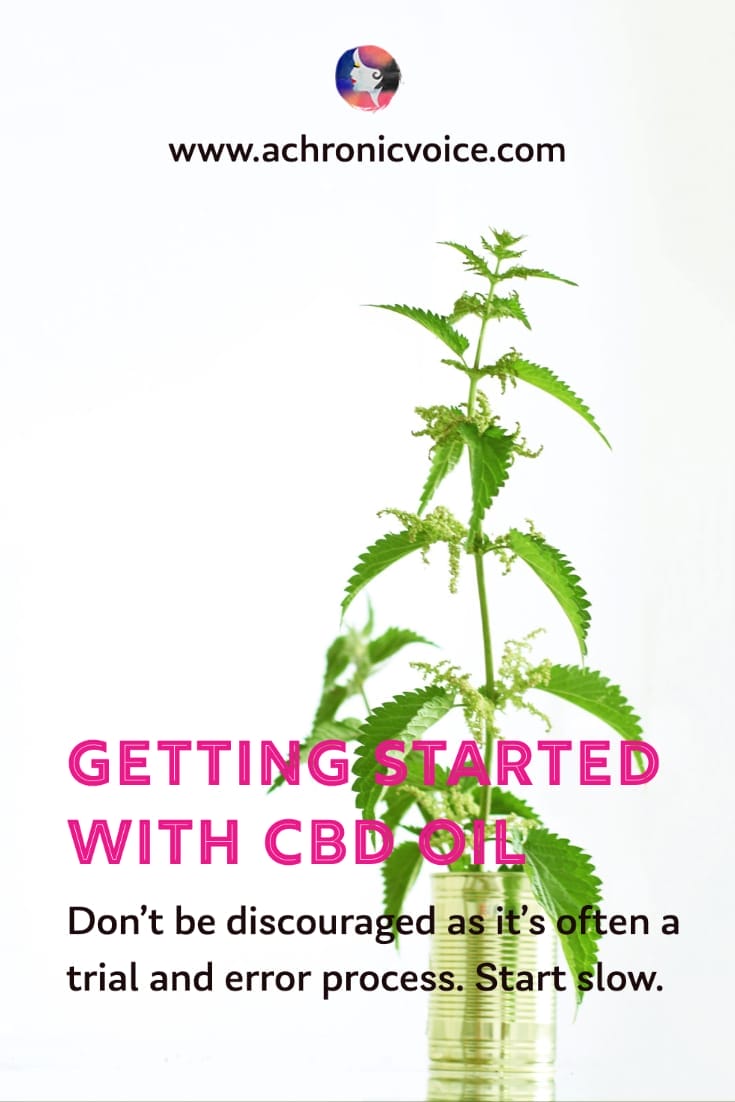
Choosing a Quality Product That’s Right for You
There are many companies selling CBD Oil these days; I’m sure that you’ve received spam on social media or in your inbox before. But not all products are equal, and it’s important to select a high quality one that works for you.
Do ensure that the product has clear labels with the ingredients stated – the fewer the better. Do also check for the laboratory certificate. CBD Oil doesn’t taste the best and often contains a carrier oil such as olive oil – pick one that you like. Where the hemp was grown is also important. If you’re from the UK, you can check the Cannabis Trades Association UK (CTA UK). If you’re from the US, ensure that it’s from an American farm. The extraction method matters for purity of product; the CO2 extraction method is favoured, as no harsh chemicals or solvents are used.
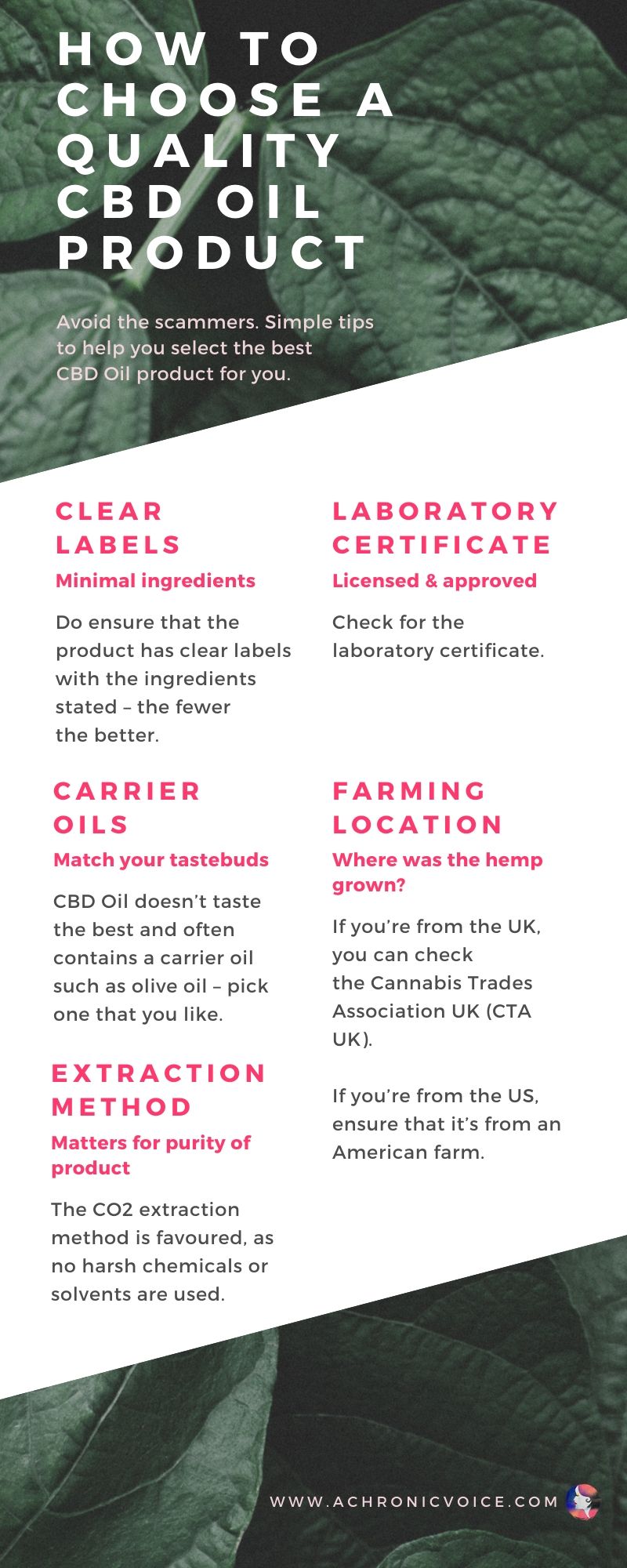
In Conclusion
Do your research before purchasing a CBD Oil product, and start experimenting at your own pace. Good quality tends to cost more in general; you don’t want to be consuming something full of pesticides, or from a shady mix of ingredients. If you have any questions, ask the company selling it; they should be professional and be able to give a proper answer. Lastly, whilst CBD Oil may help with pain relief and thus improve your quality of life, it is not a definitive cure. I would stay far away from anyone who touts it as such.
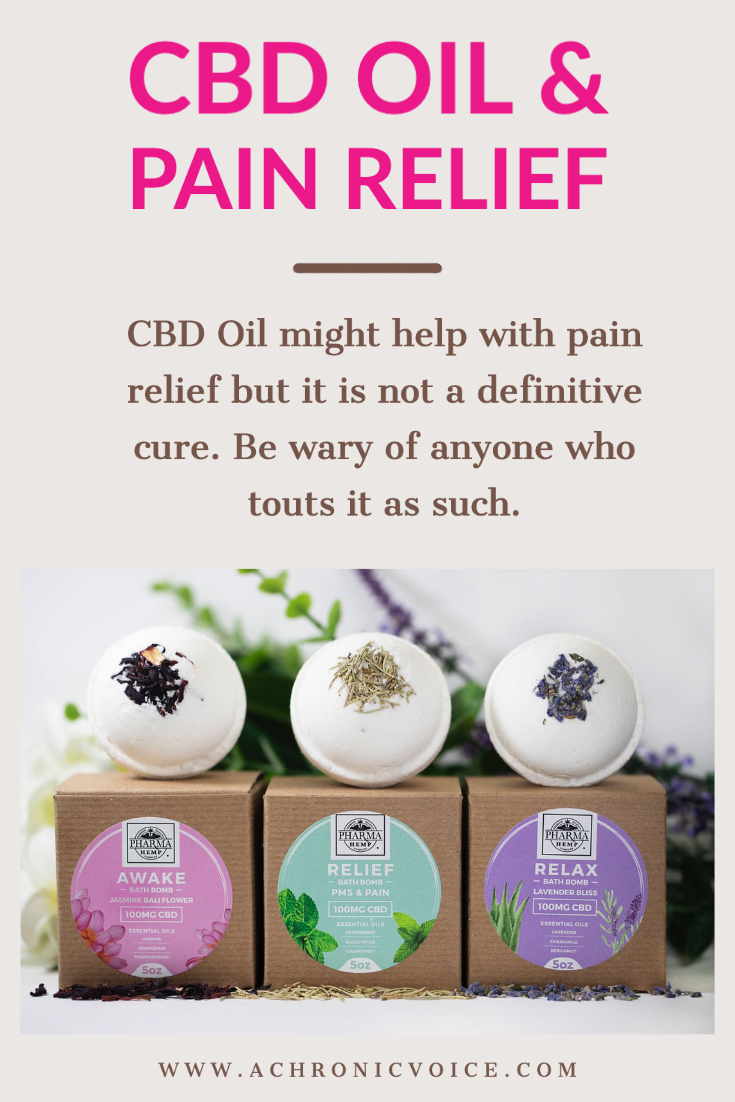
I also wanted to refer you to one of my favourite bloggers from the UK who does frequent research, and has a section dedicated entirely to CBD research, Jo of “A Journey Through the Fog”. I wish that I could try CBD Oil out in my country but for now, I will have to experience it vicariously through you. Let me know how it has benefitted you in the comments below!
This list is just a rough guide, and nothing written should be taken as medical advice. Always be sure to check with your doctor before you start on any new treatment or protocol.
Read More: Why Painkillers are One of My Biggest Allies for a Decent Quality of Life
If you liked this article, sign up for our mailing list so you don’t miss out on our latest posts! You will also receive an e-book full of uplifting messages, quotes and illustrations, as a token of appreciation!
Save It to Your Health & Wellness Boards:
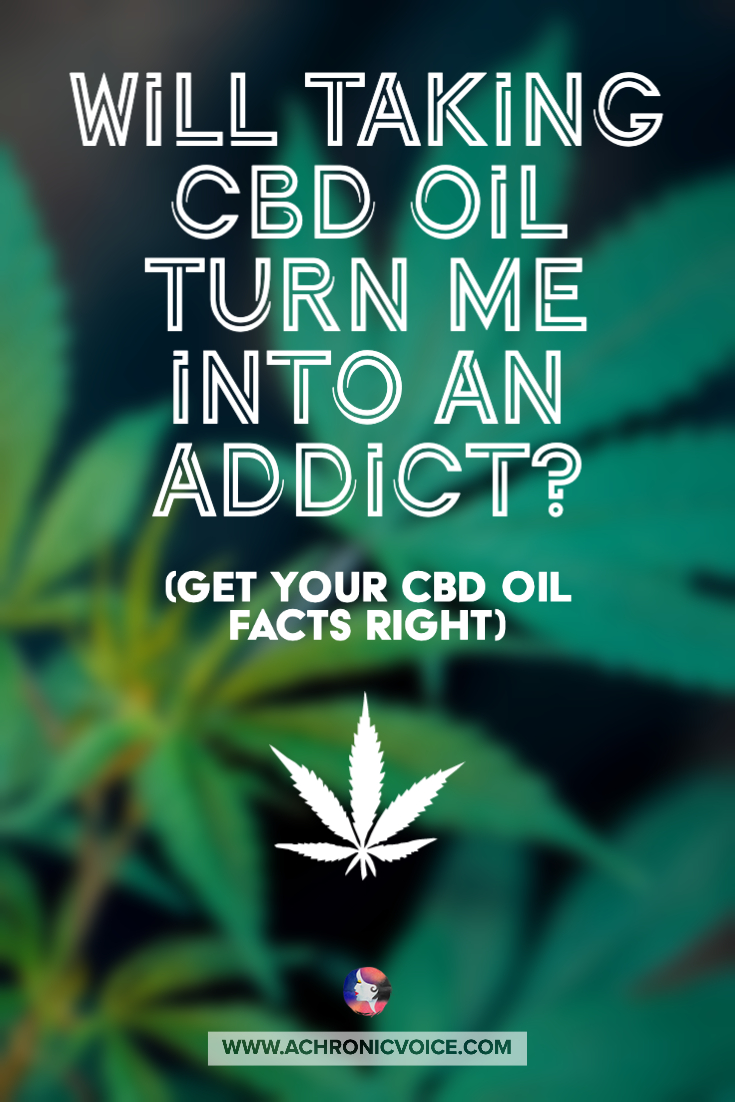
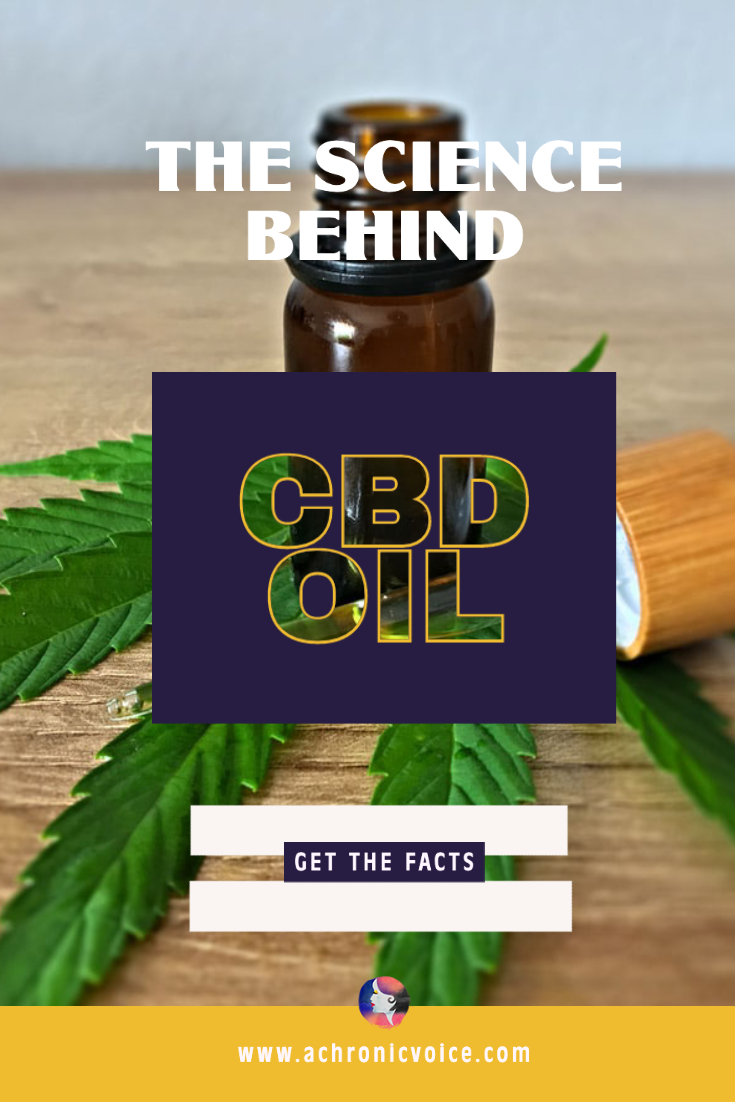
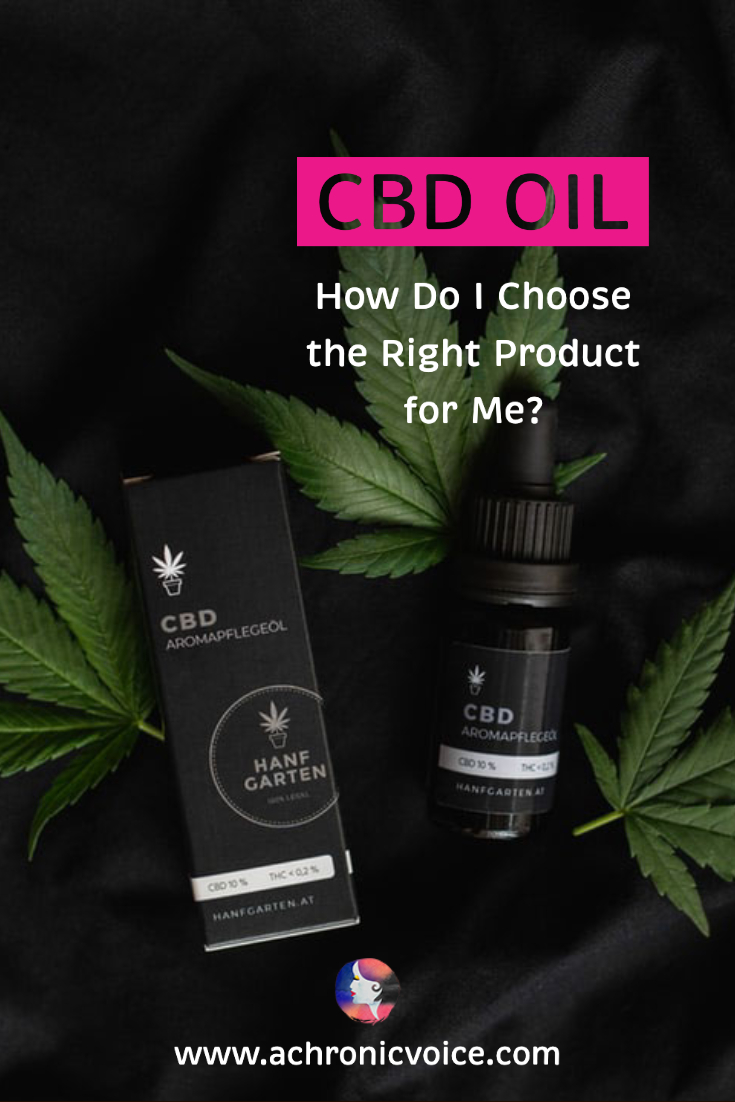
-
For More Insight:
- Cannabidiol (CBD) — what we know and what we don’t (health.harvard.edu): http://bit.ly/2JjDe3X
- Cannabidiol (CBD) Critical Review Report, Expert Committee on Drug Dependence Fortieth Meeting Geneva, 4-7 June 2018 (who.int): http://bit.ly/2LIqPIz
- What Is the Best CBD Oil to Purchase? 5 Helpful Tips for Buying CBD Oil (februarystars.co.uk): http://bit.ly/2XRerMT
- What is CBD? (livescience.com): http://bit.ly/2YE0zCP
- Classification of Receptors by Stimulus (lumenlearning.com): http://bit.ly/2xytD2z
-
Sources:
- Huan Gui, Xia Liu, Zhi-Wei Wang, Dong-Yi He, Ding-Feng Su, Sheng-Ming Dai, Expression of cannabinoid receptor 2 and its inhibitory effects on synovial fibroblasts in rheumatoid arthritis, Rheumatology, Volume 53, Issue 5, May 2014, Pages 802–809, https://doi.org/10.1093/rheumatology/ket447
- NIDA. “Marijuana.” National Institute on Drug Abuse, 22 Jun. 2018, https://www.drugabuse.gov/publications/drugfacts/marijuana. Accessed 8 Jul. 2019.
- Pertwee R. G. (2008). The diverse CB1 and CB2 receptor pharmacology of three plant cannabinoids: delta9-tetrahydrocannabinol, cannabidiol and delta9-tetrahydrocannabivarin. British journal of pharmacology, 153(2), 199–215. doi:10.1038/sj.bjp.0707442

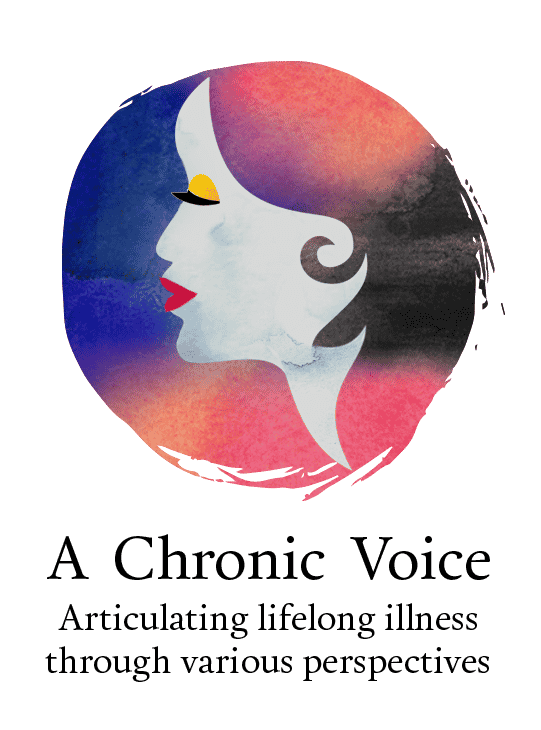
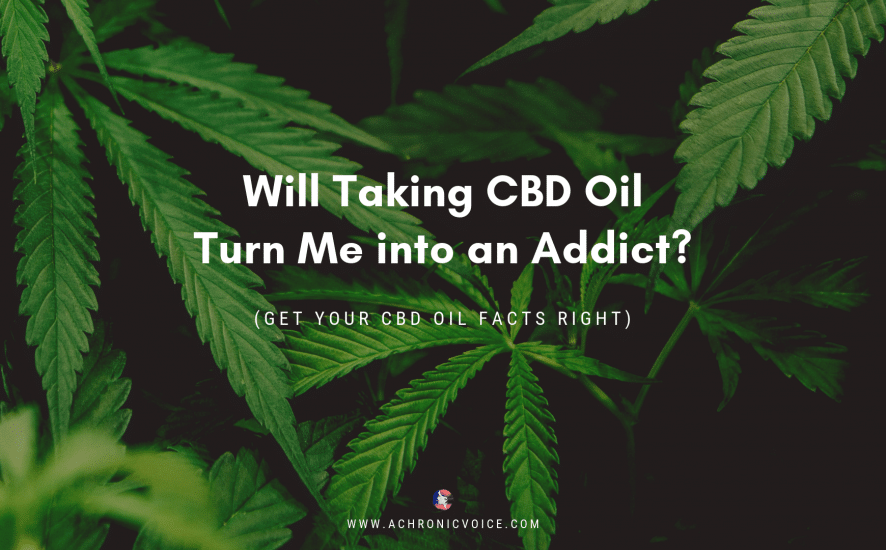
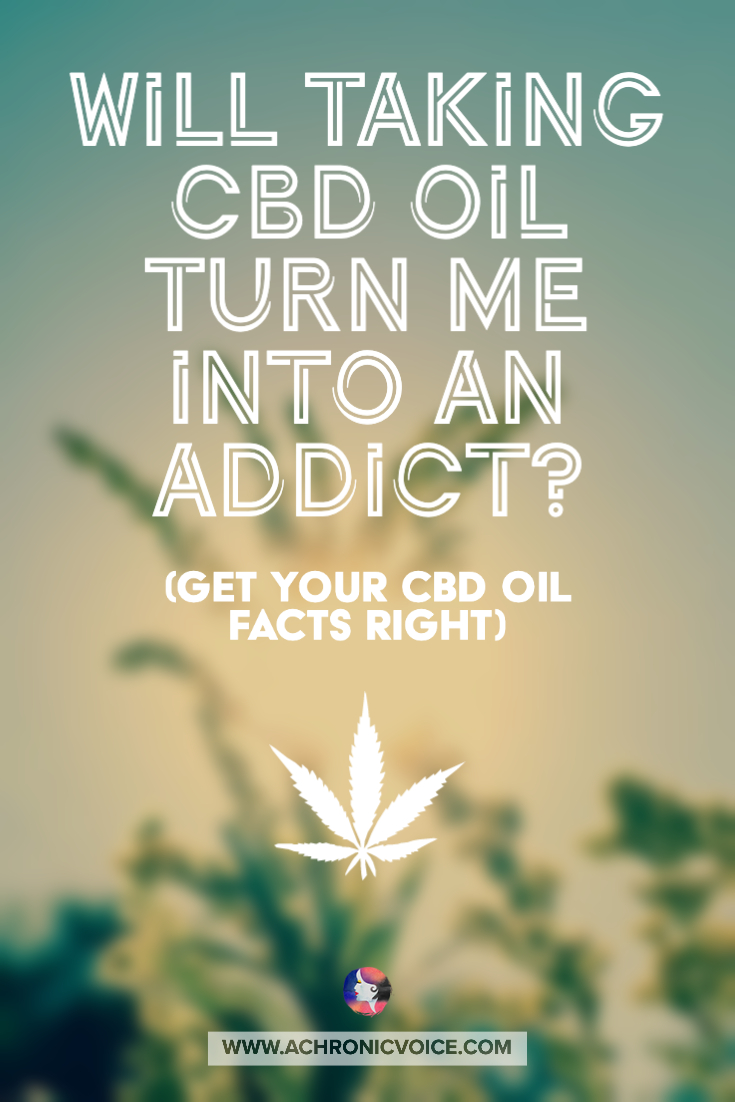
Sheryl,
I’ve been thinking about CBD, but haven’t tried it yet! Your post has helped things feel a bit clearer. I’m in NJ, where medical marijuana is an option, but recreational isn’t legal. I’ve tried one or two CBD products and wasn’t particularly impressed, but I remain open to trying things out more rigorously. It’s good to understand the science better, as generally, I’ve just been having tastes from friends who use pot or CBD products regularly, rather than doing research on my own. I’m definitely not afraid to try, but between financial concerns and so far not noticing any major positive impacts, I haven’t done much digging.
It’s strange how in India cannabis is very very available – even for certain religious festivals. It’s also what brought a lot of hippies to India in the ’70s but yet cannabis for medical purposes was not really an option until recently – there’s still a while to go I think before it becomes easier but the change has begun. And so, as this change grows, I would love to give it a go. I’m really glad I read this today – it’s a good reminder for me to keep an eye-out on this option. Very informative read – thank you Sheryl.
That’s interesting Shruti! I need to get myself to India lol. I wonder what sort of cannabis though, as it’s all so very different with the strains, etc. Hope you find relief with it if you ever do try!
Like you, CBD products are not available in Taiwan, but they are in the US and Canada. I have tried CBD in both countries from reputable resources for extended periods of time. It didn’t help my pain, but I do know plenty of people who benefit from CBD and kratom. THC with a CBD component works well though. Great article, Sheryl. Really well researched.
Yes same here! I think it’s more beneficial for nerve type disorders as inflammatory, at least from what I’ve observed so far. It’s all so sketchy.
I know so many people find it helpful, but I’ve always been a bit scared to try. Reading this makes my think about asking my doctors if I could try it out!
Haha it actually is not so scary, especially if you start slow. But yes best to do it under professional guidance especially since you have MCAS!
It’s become the hottest wellness product, helping people manage common health issues such as pain, anxiety, stress, inflammation and inconsistent sleep.
You’ve seen CBD products everywhere. They’re online, in physicians’ offices, at health food stores, in mall kiosks and even at gas stations. So popular, that’s why articles like this is very helpful to those who are interested to try.
Thanks Lauren. A lot of it is also fluff I think, and so important to do a bit of research before putting anything on or into your body. Hope it helps you!
It’s been used for ages in many societies and tribes..I hope that more research will be done to see its exact effects on our body and how it can help!
Thanks Nikki! It didn’t work for me either when I tried it in Europe (but I didn’t try all forms or all strains). Anything to help ease the pain is worth trying, huh.
Very well informed article. I don’t think CBD worked for me but I may try it again. Edibles with THC are more my thing… I do not get stoned, I can still do things on it, do not get sleepy… and the pain is dulled quite a bit… so Bonus!